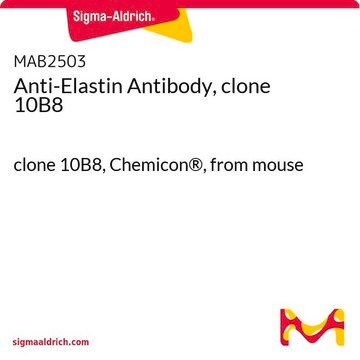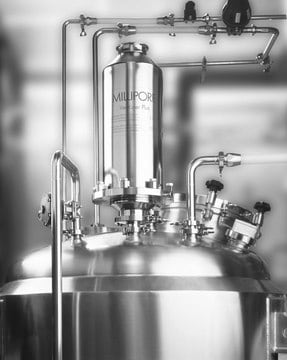MAB1904
Anti-Laminin-1 A&B chains Antibody, cross region, clone AL-2
clone AL-2, Chemicon®, from rat
Synonym(s):
laminin alpha1, laminin beta1
About This Item
Recommended Products
biological source
rat
Quality Level
antibody form
purified antibody
antibody product type
primary antibodies
clone
AL-2, monoclonal
species reactivity
mouse
manufacturer/tradename
Chemicon®
technique(s)
ELISA: suitable
immunofluorescence: suitable
immunohistochemistry: suitable (paraffin)
immunoprecipitation (IP): suitable
western blot: suitable
isotype
IgG1κ
NCBI accession no.
shipped in
wet ice
target post-translational modification
unmodified
Gene Information
mouse ... Lama1(16772)
General description
Specificity
Immunogen
Application
An independent laboratory (Schèele, S., 2006) has verified anti-laminin clone AL-2 to work using immunofluorescence techniques on mouse muscle tissue, including both transgenic and wild-type tissues.
Cell Structure
ECM Proteins
Quality
Target description
Physical form
Storage and Stability
Other Notes
Legal Information
Disclaimer
Not finding the right product?
Try our Product Selector Tool.
Storage Class
12 - Non Combustible Liquids
wgk_germany
WGK 1
flash_point_f
Not applicable
flash_point_c
Not applicable
Certificates of Analysis (COA)
Search for Certificates of Analysis (COA) by entering the products Lot/Batch Number. Lot and Batch Numbers can be found on a product’s label following the words ‘Lot’ or ‘Batch’.
Already Own This Product?
Find documentation for the products that you have recently purchased in the Document Library.
Our team of scientists has experience in all areas of research including Life Science, Material Science, Chemical Synthesis, Chromatography, Analytical and many others.
Contact Technical Service







